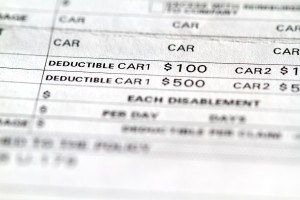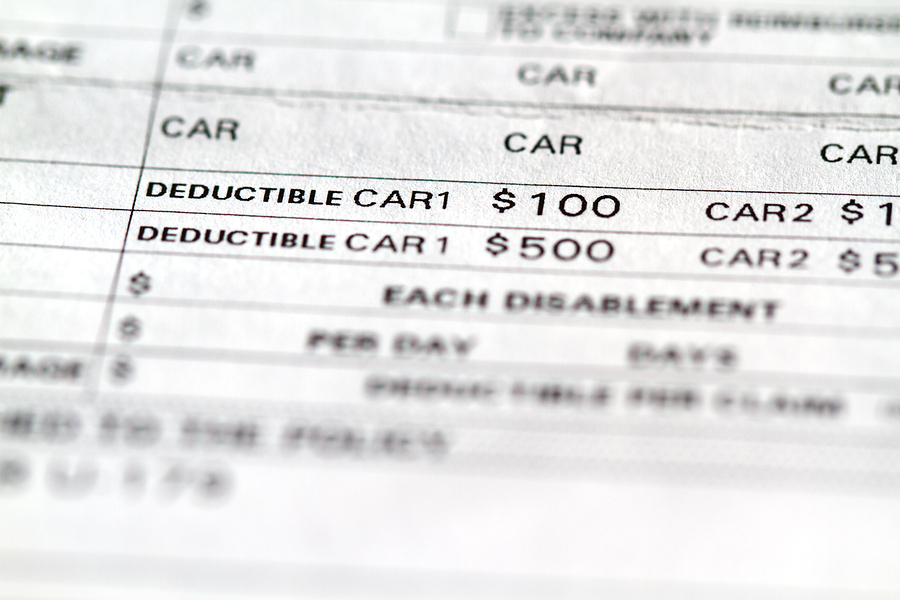Insured motorists are called upon every day to pay their deductibles in order for their carriers to cover the necessary repairs to their motor vehicles after accidents. Many carriers refuse to include those deductibles in the subrogated claims they make against the other motorists involved in accidents with their insureds. Because they are left on their own, insured motorists often later sue the other motorist(s) involved in those accidents in a small claims court to recover the deductible amounts they paid. And, almost as often, these insured motorists are successful in the small claims action for their deductibles.
***
The words above constitute the first paragraph in a new Indiana Court of Appeals decision involving a dismissal of an automobile property subrogation suit. Geico Ins. Co. v. Graham, 2014 WL 3887800 (Ind. App. 2014). These words set the stage for an issue which can complicate otherwise straightforward and successful subrogation efforts on the part of an insurance company which has paid property damage to or on behalf of its insured. Many carriers include their insured’s deductibles in their subrogation demands and lawsuits, obviating the need for their insureds to take any independent action to secure their deductible payments. It makes for good customer relations and marketing to include an insured’s deductible in any subrogation demands or litigation following an accident resulting in property damage to the insured’s vehicle or other property. However, there is a much more cogent reason to include and recover the deductible on behalf of your insured. If you don’t, you might lose your subrogation rights altogether.
 Whether and when a carrier includes its insured’s deductible in any subrogation demands or lawsuits varies from state-to-state. Some states require an insurer to include its insured’s deductible in its subrogation demand to the third-party tortfeasor. In Kentucky, § 12:096 of that state’s Unfair Claims Practices Regulations requires that, if requested by claimant, the insurer must include first-party claimant’s deductible, if any, in its subrogation demands. 806 Ky. Admin. Reg. 12(3)(d)(5). Washington requires an insurer to include its insured’s deductible in its subrogation demands and further requires any third-party recovery to be allocated first to repayment of the deductible. R.C.W.A. § 284-30-393. The same is true in Illinois where the deductible has not otherwise been recovered independently by the insured. 215 I.L.C.S. § 5/143b. Other states require inclusion of the deductible in subrogation demands only if requested by the insured. 31 Pa. Admin. Code § 146.8. Still others, like New York, specify when and how a deductible must be reimbursed, and in what amount, but do not place the burden on the carrier to specifically include the deductible. N.Y. Ins. Reg. 64, § 216.7(g)(1). A number of states simply do not address it. For a comprehensive chart on when and in what amounts an insurer must reimburse its insured’s deductibles, see the chart on our website. However, if a carrier determines that it is not going to include its insured’s deductible in its subrogation efforts, it must be prepared for the consequences.
Whether and when a carrier includes its insured’s deductible in any subrogation demands or lawsuits varies from state-to-state. Some states require an insurer to include its insured’s deductible in its subrogation demand to the third-party tortfeasor. In Kentucky, § 12:096 of that state’s Unfair Claims Practices Regulations requires that, if requested by claimant, the insurer must include first-party claimant’s deductible, if any, in its subrogation demands. 806 Ky. Admin. Reg. 12(3)(d)(5). Washington requires an insurer to include its insured’s deductible in its subrogation demands and further requires any third-party recovery to be allocated first to repayment of the deductible. R.C.W.A. § 284-30-393. The same is true in Illinois where the deductible has not otherwise been recovered independently by the insured. 215 I.L.C.S. § 5/143b. Other states require inclusion of the deductible in subrogation demands only if requested by the insured. 31 Pa. Admin. Code § 146.8. Still others, like New York, specify when and how a deductible must be reimbursed, and in what amount, but do not place the burden on the carrier to specifically include the deductible. N.Y. Ins. Reg. 64, § 216.7(g)(1). A number of states simply do not address it. For a comprehensive chart on when and in what amounts an insurer must reimburse its insured’s deductibles, see the chart on our website. However, if a carrier determines that it is not going to include its insured’s deductible in its subrogation efforts, it must be prepared for the consequences.
In Geico Ins. Co. v. Graham, Graham and Heitkamp were involved in an automobile accident. Heitkamp was insured by Geico, which paid $7,540.22 to her, whereupon she signed a release in which she released all claims against Geico and promised not to compromise Geico’s subrogation rights. Notwithstanding this promise, Heitkamp filed a small claims action in St. Joseph County against Graham seeking to recover her $500 deductible. A month later, Geico filed a subrogation suit against Graham in Superior Court seeking to recover the $7,540.22 it had paid to Heitkamp. Shortly thereafter, the small claims court entered judgment in favor of Graham, finding that Heitkamp was at fault in the accident. Graham then sent a letter to the Superior Court, informing the Court of the adverse ruling in small claims court. Geico filed a motion for summary judgment in the Superior Court case and although Graham appeared in person and without counsel at the hearing, she presented no evidence and the Superior Court entered summary judgment in favor of Geico. Shortly thereafter, Graham, this time with the assistance of counsel, filed a motion to set aside the entry of summary judgment and the Court entered an order granting Graham’s motion to set aside the entry of summary judgment and dismissing Geico’s claim. The trial court concluded that Heitkamp’s unsuccessful small claims court action against Graham constituted res judicata, barring the subrogation action. Geico appealed.
On appeal, the Court of Appeals affirmed the dismissal of Geico’s subrogation lawsuit. It noted that the principle of res judicata is divided into two branches: claim preclusion and issue preclusion.
- Claim preclusion applies where a final judgment on the merits has been rendered and acts as a complete bar to a subsequent action on the same issue or claim between those parties and their privies. When claim preclusion applies, all matters that were or might have been litigated are deemed conclusively decided by the judgment in the prior action. The following four requirements must be satisfied for claim preclusion to apply as a bar to a subsequent action: (1) the former judgment must have been rendered by a court of competent jurisdiction; (2) the former judgment must have been rendered on the merits; (3) the matter now in issue was, or could have been, determined in the prior action; and (4) the controversy adjudicated in the former action must have been between the parties to the present suit or their privies.
- Issue preclusion, also known as collateral estoppel, bars the subsequent litigation of a fact or issue that was necessarily adjudicated in a former lawsuit if the same fact or issue is presented in the subsequent lawsuit. If issue preclusion applies, the former adjudication is conclusive in the subsequent action, even if the actions are based on different claims. Issue preclusion does not extend to matters that were not expressly adjudicated and can be inferred only by argument. In determining whether issue preclusion applies, a court must engage in a two-part analysis: (1) whether the party in the prior action had a full and fair opportunity to litigate the issue, and (2) whether it is otherwise unfair to apply issue preclusion given the facts of the particular case.
Complicating the matter is the fact that Indiana Small Claims Rule 11(F) states, “A judgment shall be res judicata only as to the amount involved in the particular action and shall not be considered an adjudication of any fact at issue in any other action or court.” The Court held that Rule 11(F) prohibited the application of issue preclusion based on a small claims judgment, but … did not prohibit claim preclusion. Geico claimed that this rule precluded the trial court from considering the small claims judgment as an adjudication of any fact. While the Court of Appeals actually agreed with this position, it stated that the principles of the claim preclusion branch of res judicata applied, supporting the dismissal of the subrogation suit.
The lesson to be learned is to openly communicate with your insured about the detrimental effect independent action with regard to recovering the deductible may have on your subrogation rights. Whether or not such action jeopardizes your subrogation rights, thereby violating and breaching the terms of the policy, is a matter which was not addressed by the court in Graham, but should never be put completely out of mind. Recovering your insured’s deductible as part of your subrogation program is good business. And as we have seen, it can also be the difference between making a good subrogation recovery, and none at all.[polldaddy poll=8441291]
Was this article valuable?
Here are more articles you may enjoy.



 Portugal Rolls Out $2.9 Billion Aid as Deadly Flooding Spreads
Portugal Rolls Out $2.9 Billion Aid as Deadly Flooding Spreads  Navigators Can’t Parse ‘Additional Insured’ Policy Wording in Georgia Explosion Case
Navigators Can’t Parse ‘Additional Insured’ Policy Wording in Georgia Explosion Case  Hackers Hit Sensitive Targets in 37 Nations in Spying Plot
Hackers Hit Sensitive Targets in 37 Nations in Spying Plot  Canceled FEMA Review Council Vote Leaves Flood Insurance Reforms in Limbo
Canceled FEMA Review Council Vote Leaves Flood Insurance Reforms in Limbo 